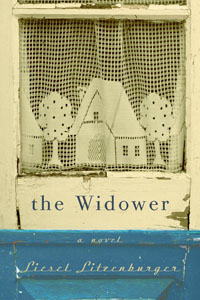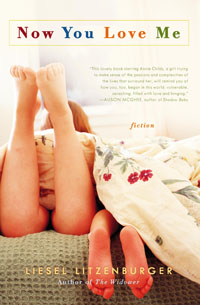 Using the girl as a narrator allowed the author to give a fresh perspective to the story. However, Litzenburger said it can be difficult to see things through the innocent eyes of youth.
Using the girl as a narrator allowed the author to give a fresh perspective to the story. However, Litzenburger said it can be difficult to see things through the innocent eyes of youth.
"You have to go back before you were jaded or had preconceived notions," she explained. "As a kid, you really are still open; your mind is open to new ideas and people."
Although Annie grew up in a similar town as Litzenburger, none of the author's characters are modeled after her. "Nothing I write has ever literally happened to me," she said.
However, Litzenburger believes a reader can learn about a writer based on the author's views throughout the novel. "I think writers often say a lot about themselves in their writing," said Litzenburger, who added it is easier for her to discuss her work than her personal life. "It's all about us in a way, because it's the way we see the world."
Litzenburger realized her dream of writing a book when she was in junior high school, and it dawned on her that the book she was reading at the time was written by a living, breathing person.
"I somehow made the connection that someone wrote this, and that could be my job," she recalled.
However, even before that moment, Litzenburger had already developed a passion for writing stories. In the third or fourth grade, Litzenburger wrote her first novel, "The Very Bad Man," which is a story of a kidnap and espionage plot in Brazil.
Litzenburger said her other passion for the written word — reading — began when she was just a young girl growing up in the mostly summer destination town of Harbor Springs, Michigan. At the time, most homeowners only lived in their properties during the summer months, so Litzenburger entertained herself with reading.
As a child, Litzenburger wasn't interested in reading the appropriate books for her age. Instead, her mom allowed her to check out books like Truman Capote's "In Cold Blood," which she read in the sixth grade. Litzenburger decided in college to pursue writing as a profession. She earned her bachelor's degree in English at the University of Michigan and her master's of fine arts degree at Western Michigan University.
After she graduated, Litzenburger spent years dabbling in careers involving writing, including journalism and teaching creative writing. Her experience includes being published in newspapers like the Detroit Free Press and the Chicago Tribune, as well as magazines such as Body+Soul. She has also taught creative writing at the University of Michigan and at New College of Florida.
Litzenburger was raised in a family full of storytellers, so writing fiction has always been nearest and dearest to her heart.
"I think novelists especially are people who would like to imagine an entire world," she said. "You have to be able to see that world, and know your characters as well as you know your friends or family members."
In fact, she allows the characters, and not the storyteller, to direct what happens to who and when. "I don't plan what I am writing in advance," she explained. "It really unfolds as a surprise to me." 
That practice helps Litzenburger find fulfillment with her writing, especially since "some people really enjoy seeing their writing unfold, like they are watching a film, and that's the way it is for me." "They are not puppets, and I am not pulling the strings," she added.
Litzenburger said writing also allows her to revive her characters. She is doing just that with a book she is currently working on and hoping to complete by the end of the year. "I see all my characters in both my novels living in the same general world, and when I miss them I can bring them back," she said.
While Litzenburger would love to return to teaching someday and remains interested in freelance non-fiction, she is enjoying the current path that her life has taken.
Said Litzenburger: "It's really nice when you can just devote your time to your own work."
For more on Liesel Litzenburger, be sure to visit her official Web site — LieselOnline.com.
- Comment








